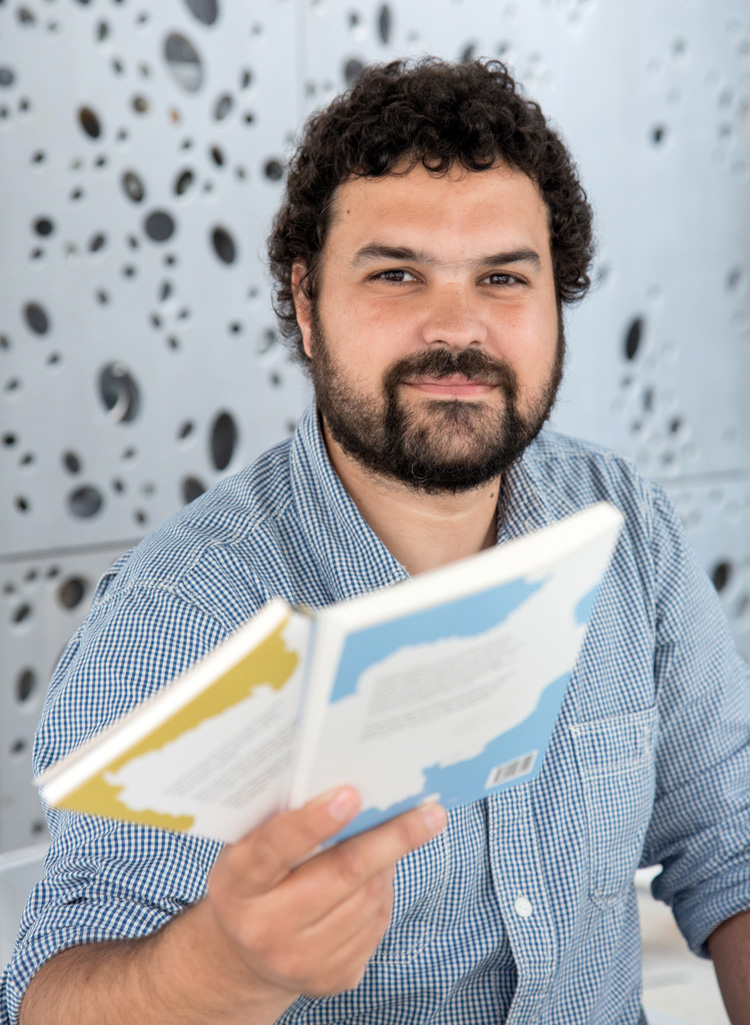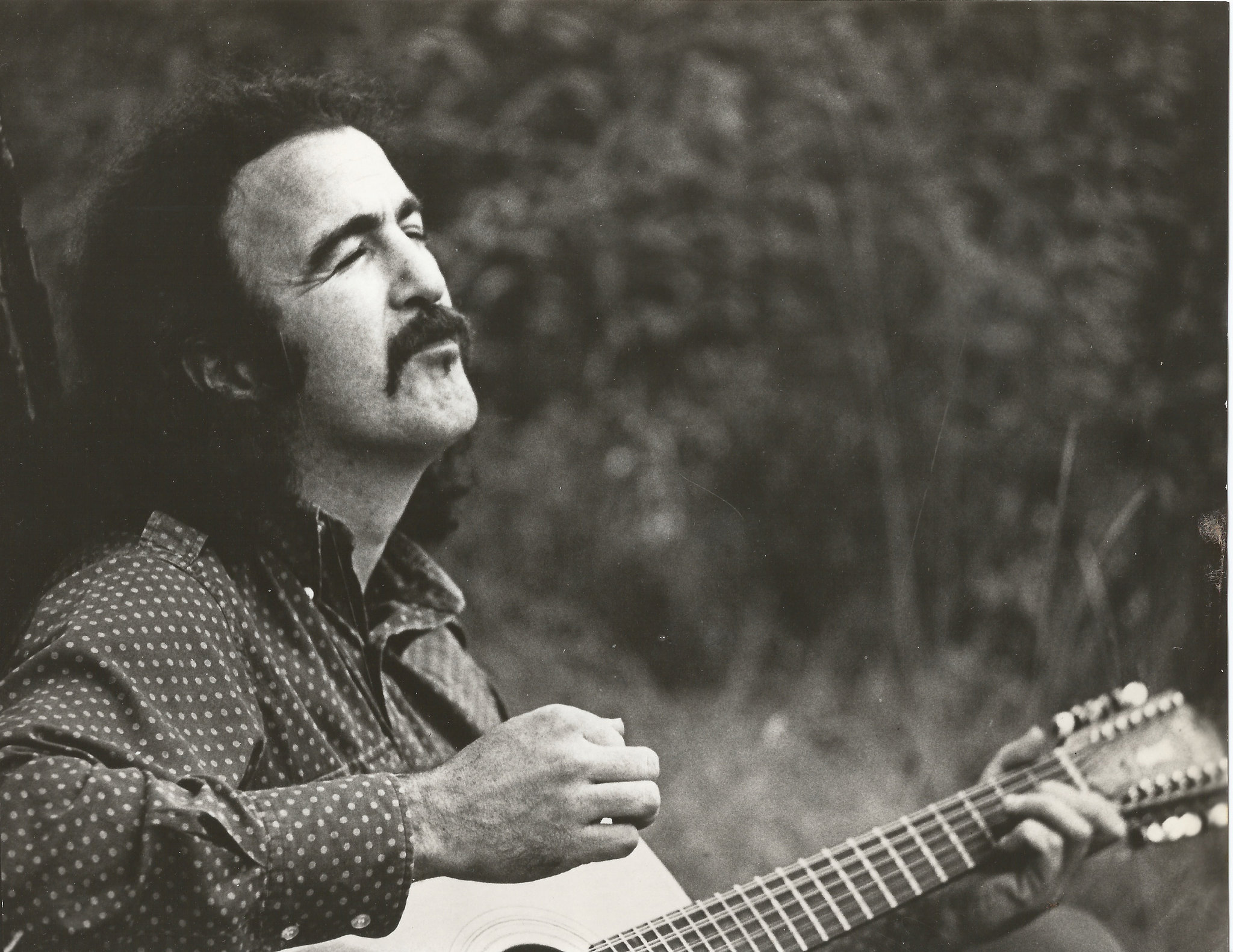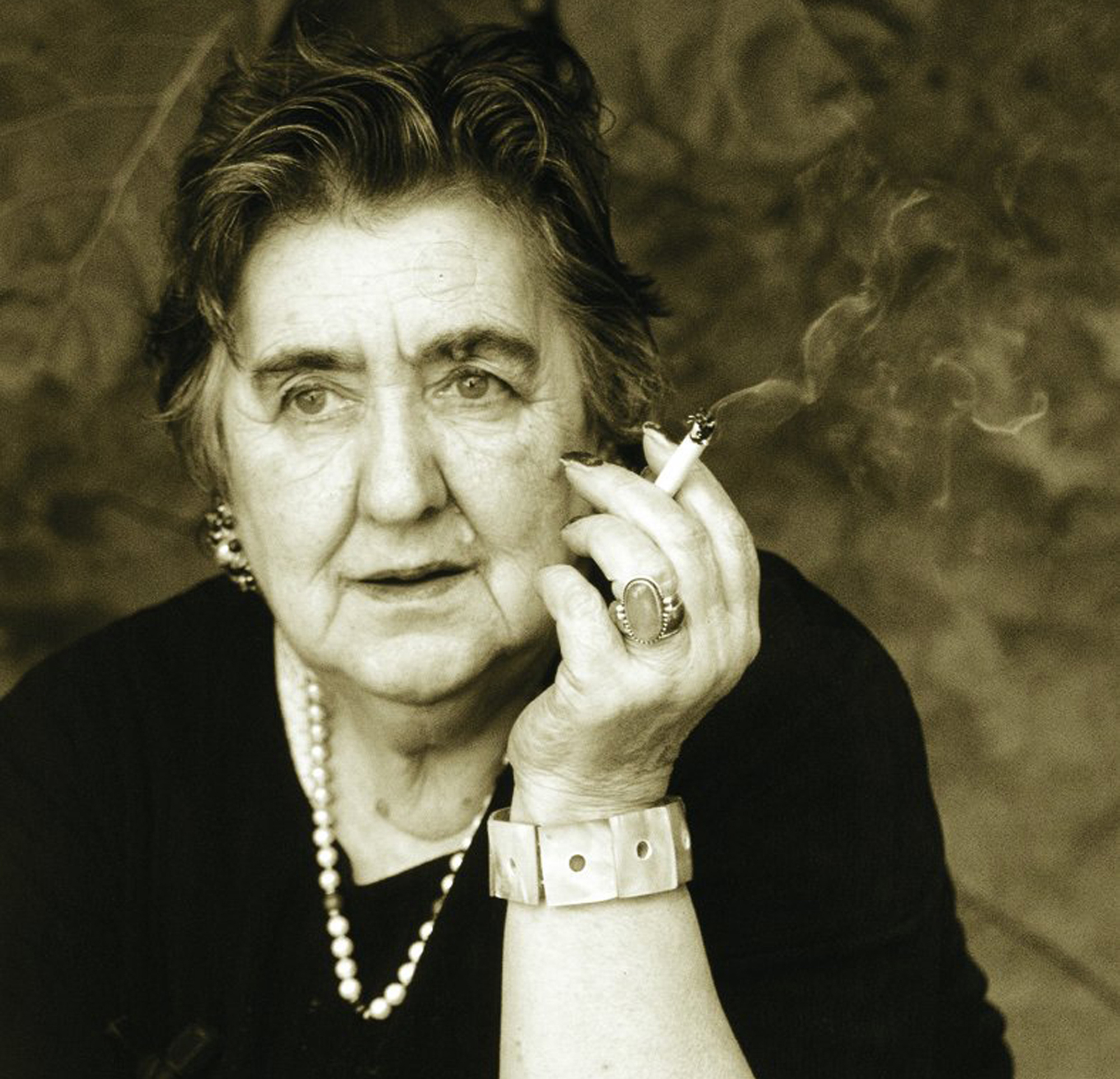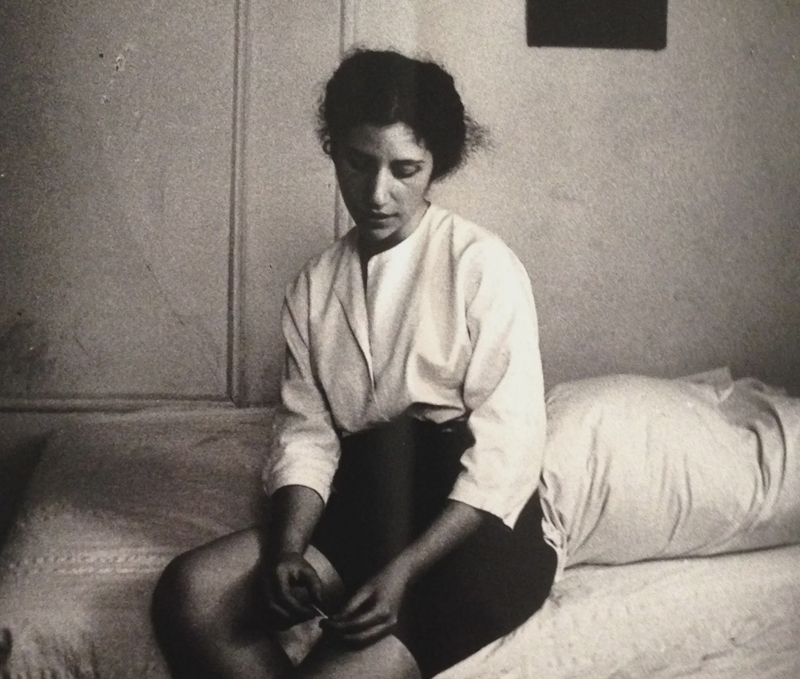"That the editorial does not give money is not good for me or for the Basque culture"
- 1979. Vilagarcía de Arousa (Pontevedra). In 1999 he moved to Bilbao to study law. He had practiced two years of advocacy, but he had no fun. She settled in San Sebastian a year later with her partner. He is an employee of the sports company Decathlon for half a day. In the other center, besides taking care of the two children, he has books that fascinate and live. However, it is not a oficio.Fund editorial Pasazaite in 2012. Before the end of the year it will publish two other books: The Iraqi Christ of Hassan Blasm and On the Road of Jack Kerouac.

Unusual editor. Special. Weird. The protagonist of this story can take all the names he wants. The five have been offered on the terrace of the cafeteria of the San Telmo Museum of Donostia. The photographer has listened carefully to the story that the book has told us as a special benefit. Pasazaite’s books come above the borders of the world, they are called “literature.” First wonder question: “How do I edit?”
“The truth is that I am not an editor. I do not have the knowledge of the Basque Country necessary to edit it. I have no relation to literature on the part of my family or friends. The couple does not belong to the world of literature either. Of course, my parents brought us into the passion for reading. That has been my childhood hobby,” the interlocutor tells us. He also liked to play sports.
I had long thought about the opening of the publishing house, which took place in 2012, precisely when other publishers were about to close: “I called Moses Barcia for the Rhinoceros Editor of Galicia. I didn't know him. It works on translation. He explained to me the business side of the editorial. I made calculations and moved forward.” However, the company does not bring any economic benefit, just a little book publishing. It was four years old in July. Each year he has published two or three books: 10 already. All in Basque: “It didn’t occur to me or it occurred to me to translate into Spanish. The void was and is in Euskera. So, if there were, in Basque.”
Upon learning about the Galician Publishing Rhinoceros, he realized, above all, the translation of the classics of universal literature, especially of the great classics: “In a way, translation is made by compromise. In Galician, having them is OK, I'm not against. But there are many books that are not known and that have not been translated. I thought they had to be translated into Basque as well.”
We've looked at the size of the ten books published, they're all similar. It's not their choice, the economy limits the publication of the largest ones. The cost stops: “To make more pages means to make the book more expensive because the translation has to be paid. At most, I had to adjust in 220-230 pages, at a price of EUR 14-16. To be translated is not expensive, books are usually worth more.”
Queiruga does not win or lose anything: “Some make triathlons, mountain marches or surfing... I publish favorite authors in Basque. But, let's be clear, I don't want to consider it a hobby. It is better to publish it and become a profession. It leaves nothing to me financially, and that is not good for the editor, nor for the Basque culture. I wish I could live from this.”
The editorial Pasazaite does a professional job, but the editor is not professional: "In any case, neither altruism nor voluntarism are good. I still get tired and I have to change this life.”
This special editor has managed to maintain the project and is pleased. It's no small thing, in view of the world of the book. “The project is planned for another two years. I am surprised that books are sold over the years. In these times of editorial lockdown, getting the publisher out of nowhere is no small thing. Moreover, the novel writers and translators ask and take an interest in where this type of servant has appeared, it is no small matter. Among other things, because I'm not native."
As indicated by the name of the editorial and the logo of it (Check pointa), Pasazait brings import books. Queiruga's wish was to treat the book as a commodity that transcends the border. They helped him in the La Personnalité study of Donostia-San Sebastián to design books and website. This lover of books that leave no benefit, does not want photos on the cover of the books, loves those who are not loaded with images: “We play with the limit of having clean surfaces. The front cover and the back cover show the boundaries of bookseller countries. The book is made known by itself. Moreover, they are independent.”
It has office and book warehouse at home. But everything is legal: author, photographer, translator, corrector, design… everything is paid. However, there is no logo of the Basque Government or of the Provincial Council of Gipuzkoa: “The rules on access to aid should be renewed. The book must have a minimal spin. Mine is small and I don't have help. The first five books were interrupted: For every 900 units. Now it's a digital spin. The book is a bit more expensive, but the spin is smaller: 300 to get started. If sold, ask for another 50 and go ahead.” Many publishers are currently working in the digital world. The Spanish print runs around 2,000 copies. So there was no danger.
Share part of the spin through the distributing company Elkar. The others take them himself to the shops. It has produced and sold almost all 5,000 volumes. For example, for dinner the Mussel of the second edition (Birgit Vanderbeke; translated by Ainhoa Irazustabarrena) has 900 specimens sold: “I do a rigorous calculation. If the previous one has given money, I finalise the expenses and prepare a new edition. The books of Pasazaite work well in reading clubs. I'm invited by members of the literary clubs, it's a good form of relationship. Readers recommend books in their circles.”
Reputable editor
Pasazait has achieved a good reputation among the readers, first because the editor has surrounded the good translators: “It was hard for me to find translators. Not everyone agrees, some work in college or in the press. So far, I have found a translator for each book, always different, depending on the language and subject of the author.” Xabier Queiruga knows several languages, does not fully master the Basque language, but trusts the translators and correctors: “I have every confidence in them. Back. Read. I check the changes, I give the translators the approval and the public.”
Copyright in the book is 8%. The authors know that the editorial is small, as well as the language: “However, I pay the fees for EIZIE (Association of Basque Language Translators, Correctors and Interpreters). I need to have a quiet conscience. So I put the project together. Or it calls business. It’s a business, not for me, but for the rest of the book’s authors it is in their small.”
The Internet has made its project possible. Browse the world, list books, ask for recommendations, read reviews and criticisms..: “On average, I’ve calculated I need 15 minutes per day. From time to time, when I talk to authors, translators, proofreaders and designers, I do an intense two-week job for each book.”
He is working on the following two books: Iraqi Christ by Hassan Blasm, translated by Ana Isabel Morales and On the Road by Jack Kerouac, translated by Iñigo Roque. The title of the latter in Basque has not yet been decided. However, it is on its way.
Adolfo Bioy Casares (1914-1999) idazle argentinarrak 1940an idatzitako La invención de Morel (Morelen asmakizuna) eleberria mugarritzat jotzen da gaztelaniaz idatzitako literatura fantastikoaren esparruan. Nobela motza bezain sakona da, aparta bere bakantasunean, batez... [+]
Ekain honetan hamar urte bete ditu Pasazaite argitaletxeak. Nazioarteko literatura euskarara ekartzen espezializatu den proiektuak urteurren hori baliatu du ateak itxiko dituela iragartzeko.
Aste honetan aurkeztu da Joseph Brodskyk idatzitako Ur marka. Veneziari buruzko saiakera. Rikardo Arregi Diaz de Herediak itzuli eta Katakrak argitaletxeak publikatu du poeta errusiar atzerriratuari euskarara itzuli zaion lehen liburua.
"There were women, there they were, I met them, but their families locked them in the mental hospital, put them in electroshock. In the 1950s, if you were a man, you could be a rebel, but if you were a woman, your family would lock you in. There were some cases, and I met them... [+]
Gauza garrantzitsua gertatu da astelehen honetan literatura euskaraz irakurtzea atsegin dutenentzat: W. G. Sebalden Austerlitz argitaratu du Igela argitaletxeak. Idoia Santamariak egindako itzulpenari esker, idazle alemaniarraren obrarik ezagunena nobedadeen artean aurkituko du... [+]
Asteazken honetan aurkeztuko dituzte Erein eta Igela argitaletxeek Literatura Unibertsala bildumako hiru lan berriak, tartean Maryse Condéren Bihotza negar eta irri (ene haurtzaroko istorio egiazkoak). Joxe Mari Berasategik euskaratua, idazle guadalupearraren obra... [+]

























